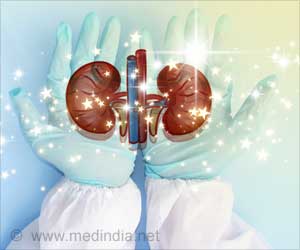Think you’re hooked on sugar? Learn about sugar addiction symptoms, why it happens, and how to kickstart a sugar detox for a healthier lifestyle.

- Sugar addiction can trigger physical and mental symptoms like cravings, mood swings, and withdrawal
- Gradually reducing sugar intake, hydrating, and eating balanced meals can ease cravings
- Professional support from dietitians or therapists can help manage sugar addiction effectively
Sugar addiction is controversial, with studies supporting both sides of the argument. Sugar causes neurochemical changes in the brain comparable to those caused by addictive substances. If you suspect you have a sugar addiction, you can take steps to break the habit.
Advertisement
Symptoms of Sugar Addiction
Sugar addiction affects people differently. However, common indications and symptoms of sugar addiction include (1):
- Strong sugar cravings
- Consuming sweets or beverages even when not hungry
- Frequently overeating sugary meals
- Feeling fatigued or bloated after eating
- Mood changes, including increased irritability, sadness, or anxiety
- Eating sugar to deal with emotions
- Hiding or lying about sugar consumption
- Going out of your way to obtain sugar
- Experiencing withdrawal symptoms like lightheadedness, weariness, nausea, or mental fog when you stop consuming sugar
Advertisement
How to Detox from Sugar Addiction
If sugary foods are a regular component of your diet, particularly several times per day, it may take some time to detox and lessen sugar cravings. Some folks may find it easier to go cold turkey and eliminate all sources of added sugars at once. Others may find this strategy too severe and prefer a more gradual reduction in sugar consumption over time.
Regardless of how you reduce sugar in your diet, here are some more methods to assist your body detox from sugar:
-
Drink more water:
Staying hydrated is essential for your overall health and can aid digestion and satiety.
-
Increase your fiber and protein intake:
Fiber and protein make you feel fuller for longer periods of time and help stabilize blood sugar levels.
-
Consume healthy fats:
Healthy fats, such as those found in fatty fish and nuts, break down more slowly than sugar, reducing blood sugar spikes and cravings for sugary meals.
-
Get more sleep:
Sleep deprivation can raise the hunger-stimulating hormone ghrelin while decreasing the appetite-suppressing hormone leptin, increasing the chance of late-night munching. Inadequate sleep can also reduce insulin sensitivity, putting you at risk for insulin resistance and type 2 diabetes.
-
Exercise:
Regular exercise can help relieve stress and produce endorphins, which can replace the need for a sugar-induced high.
-
Avoid sugary beverages:
Eliminating sugar-sweetened beverages is a simple strategy to reduce sugar intake and empty calories in your diet. Instead, choose water or other sugar-free beverages as your beverage of choice.
The amount of time it takes to detox from sugar varies by person. Some may only need a few days, while others may require several weeks. The duration of a sugar detox depends on various things, such as how much sugar you typically take and if you cut it completely at once.
Advertisement
Why do People Have a Sugar Addiction?
The exact reason people become addicted to sugar is unknown. However, there are other possible reasons for seeking sugar and sweets:
-
Imbalances:
Some experts believe that an imbalance in some molecules, such as the chemical messenger serotonin and the amino acid tryptophan (which produces serotonin), may lead to sugar cravings (2).
-
Certain drugs:
Some medications stimulate hunger or impact blood sugar levels, which can increase appetite and cause cravings for sweet foods.
-
Habit:
Some people eat out of habit, such as usually having something sweet after a meal.
-
Undereating:
Not eating enough can make your body feel undernourished, which can lead to cravings, particularly for higher-calorie, easier-to-access items.
-
Stress:
Stress and other emotions are common causes of sugar cravings and other comfort foods (3).
-
Not getting enough sleep:
Poor sleep quality and habits have been linked to increased consumption of processed and sugar-rich foods (4).
Risks of Sugar Addiction
Sugar addiction can provide various health hazards (5), including increased:
- Weight gain
- Tooth decay
- Inflammation
- Insulin Resistance and Type 2 Diabetes
- Heart Disease
- Depression
Professional Help for Sugar Addiction
If you are battling sugar addiction and believe you require professional assistance, resources are available. Free support groups might be beneficial. Working with a registered dietitian nutritionist can help you develop a personalized approach to reducing your cravings and discovering new ways to eat more nutrient-dense meals.
When dealing with the emotions and mental health issues that come with a sugar addiction, seeing a therapist or counsellor might be helpful. In some circumstances, consulting with both a nutritionist and a mental health therapist is appropriate and beneficial.
Sugar addiction symptoms include intense cravings, binge eating, emotional eating, lying about sugar intake, seeking out sugary foods and beverages, and suffering withdrawal symptoms when not eating sugar. Tips for reducing sugar consumption include eating more fiber, protein, and healthy fats, avoiding sugar-sweetened beverages, drinking more water, getting enough sleep, managing stress, and exercising.
If you are struggling to overcome a sugar addiction, working with a healthcare professional, such as a certified dietician or a mental health specialist, can help.
References:
- Evidence for sugar addiction: behavioral and neurochemical effects of intermittent, excessive sugar intake
(Avena NM, Rada P, Hoebel BG. Evidence for sugar addiction: behavioral and neurochemical effects of intermittent, excessive sugar intake. Neurosci Biobehav Rev. 2008;32(1):20-39. doi: 10.1016/j.neubiorev.2007.04.019. Epub 2007 May 18. PMID: 17617461; PMCID: PMC2235907.) - Neurobiologic basis of craving for carbohydrates
Does poor sleep quality affect skin ageing?
(Ventura T, Santander J, Torres R, Contreras AM. Neurobiologic basis of craving for carbohydrates. Nutrition. 2014;30(3):252–256. doi:10.1016/j.nut.2013.06.010) - Emotional eating and changes in high-sugar food and drink consumption linked to psychological distress and worries: a cohort study from Norway
(Javadi Arjmand E, Bemanian M, Vold JH, et al. Emotional eating and changes in high-sugar food and drink consumption linked to psychological distress and worries: a cohort study from Norway. Nutrients. 2023;15(3):778. doi:10.3390/nu15030778) - Association between diet and sleep quality: a systematic review
(Godos J, Grosso G, Castellano S, et al. Association between diet and sleep quality: a systematic review. Sleep Med Rev. 2021;57:101430. doi:10.1016/j.smrv.2021.101430) - Impact of sugar on the body, brain, and behavior
(Freeman CR, Zehra A, Ramirez V, et al. Impact of sugar on the body, brain, and behavior. Front Biosci (Landmark Ed). 2018;23(12):2255-2266. doi:10.2741/4704)
Source-Medindia



